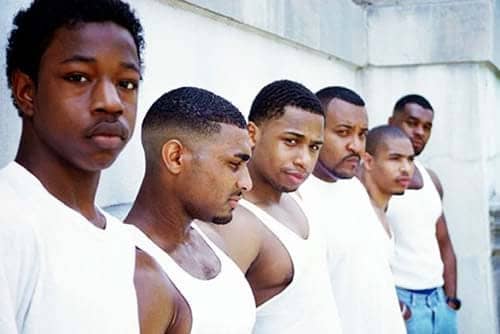Number of the day: $72,384 (to lock up youth)
 |
Photo provided by The Black Star Project |
By Angela Caputo
May 5, 2011
That's how much the Illinois Department of Corrections estimates that it would cost to incarcerate each 15- and 16-year-old convicted of gun possession if HB2067 is adopted by the state legislature this year.
State Rep. Michael Zalewski -- along with some powerful allies from the Chicago Police Department
and Mayor Daley's office -- are trying to keep the measure alive this week before the clock runs out on moving the bill from the House to the Senate on Friday.
Under the bill, 15- and 16-year-olds charged with gun possession within 1,000 feet of a school or park would automatically be transferred to the adult felony courts. Under adult jurisdiction, those convicted would be required to spend at least one year behind bars, under a new mandatory minimum sentence that Zalewski ushered through the General Assembly last year.
Zalewski himself is the first to admit that the punishment is "harsh." But in our latest investigation, Without A Smoking Gun, he told the Reporter, "Chicago has a gun violence problem. Cops and kids are dying." Stiffer sentences, he predicts, would be a deterrent.
If 15- and 16-year-olds were automatically transferred to the adult felony courts, chances are the conviction rate would stay roughly the same. But the amount of time that teens are spending behind bars would grow.
A new Reporter analysis of court data found that gun possession cases are slightly more likely to stick if defendants are prosecuted in the juvenile courts. Roughly 37 percent of defendants either pleaded guilty or were found guilty by a judge between 2009 and the first quarter of 2011.
Meanwhile, 36 percent of teens facing the same charges in the adult felony courts were convicted in 2009 and 2010.
The major difference, though, is that 17 percent of the minors convicted in the adult courts were incarcerated, compared to 2 percent in juvenile court. Over the past five years, 49 percent of 17-year-olds were sentenced to prison. The average will grow to 100 percent under Zalewski's measure, which requires all defendants convicted of gun possession post January 2011 will serve out at least 12 months behind bars.
There's no question that the higher incarceration rate in the adult courts could take potential gun-toting teens off the streets.
What may end up killing the bill is the price tag, Zalewski tells us. According to data compiled by the Illinois Criminal Justice Information Authorities, the bill has the potential to send hundreds more teens into the adult felony courts each year.
As we recently reported, 315 minors (15- and 16- year-olds) were charged under the gun possession statute during 2008 in Cook County alone. Another 268 were charged with the offense in 2009. It's unclear how many of those nearly 600 arrests occurred within 1,000 feet of a school or park because juvenile court records are sealed. Seventeen-year-olds are adults in the eyes of the courts, and therefore we obtained access to those records. We mapped more than two dozen convictions from 2009 under the same statute among 17-year-olds and found that more than half -- 13 of 27-- of randomly selected convictions fell within that 1,000-foot range.
Had Zalewski's measure already been on the books, taxpayers would be on the hook for more than $1.4 million if just one-third of the 15- and 16-year-olds charged with gun possession in 2008 and 2009 were convicted.
Will the law actually make communities grappling with gun violence safer? Phillip Jackson, the founder of The Black Star Project, a nonprofit that tends to victims of gun violence along with young ex-offenders, doubts it.
"I don't care how many of these kids you lock up, you're not going to get rid of this problem," Jackson recently told the Reporter. "There aren't enough policemen in the world to stop this."
No comments:
Post a Comment